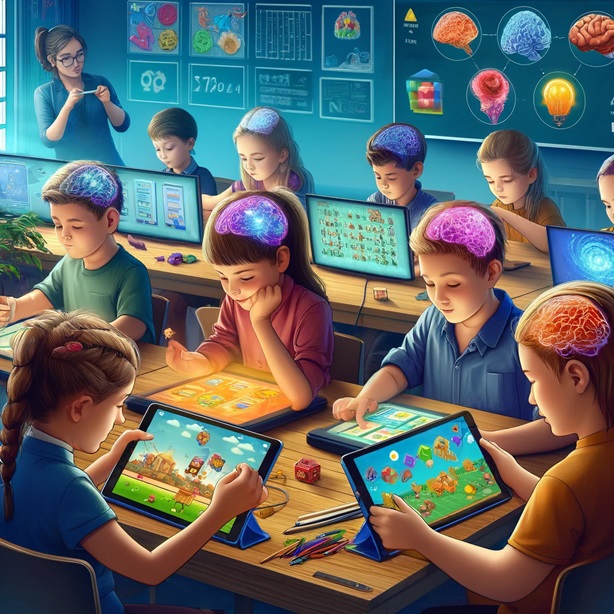Introduction
In an era dominated by digital innovation, brain training apps have become a popular tool among parents and educators seeking to enhance children's cognitive abilities outside traditional classroom settings. These apps are touted for their potential to bolster various cognitive skills including memory, problem-solving, and critical thinking. With the increasing integration of technology in education, it is imperative to scrutinize both the benefits and limitations of these digital tools in contributing to children's cognitive development.
Cognitive Skills Development
Brain training apps are intricately designed with the goal of targeting and improving specific cognitive skills through engaging and interactive gameplay. These apps often include a range of activities from memory games that aid in enhancing short-term and working memory to complex puzzles that require and nurture critical thinking and spatial reasoning. The dynamic nature of these games aims to make learning both fun and impactful, potentially translating to improved academic performance and better problem-solving skills in real-world scenarios.
Evaluating Effectiveness
The true effectiveness of brain training apps can be assessed through rigorous scientific research and analysis of user feedback. While a number of these apps are backed by research suggesting possible benefits in enhancing cognitive functions, there is also skepticism about the extent of their effectiveness. Critics often point out that some apps may only offer superficial engagement without producing long-term educational benefits. Therefore, it is crucial for parents and educators to choose apps that have a strong evidence base supporting their claims.
Educational Value
Beyond the immediate allure of game-based learning, the real educational value of brain training apps lies in their ability to align with educational standards and promote active, engaged learning. Apps that are designed in collaboration with educational professionals and cognitive scientists can offer activities that complement educational curricula, thereby reinforcing the concepts children learn in school. These apps not only support cognitive training but also enhance educational outcomes by providing practice in skills like mathematics, language arts, and science.
Practical Considerations
Selecting the right brain training app involves several practical considerations. It is essential for parents to evaluate whether an app is suitable for their child's age group, engaging enough to keep the child interested, and effectively balanced to avoid excessive screen time. Moreover, these apps should be used as a supplement to, rather than a replacement for, traditional educational methods. Integrating app-based learning with hands-on activities and real-world interaction ensures a well-rounded educational experience that promotes overall cognitive development.
Case Studies and Success Stories
Documented case studies and success stories can be compelling evidence of the benefits of brain training apps. For instance, specific apps have been shown to improve attention spans in children with attention deficit disorders, or enhance problem-solving abilities in school-age children. These success stories underline the potential of well-designed apps to make a significant difference in cognitive enhancement and are often highlighted by developers as evidence of their product's value.
Conclusion
While the market is flooded with numerous brain training apps claiming to boost cognitive functions, the effectiveness of these tools largely depends on their design, educational content, and how they are used within the broader context of a child’s education. Parents and educators must critically assess these apps, considering both scientific evidence and practical application, to effectively incorporate them into children’s learning regimes. By adopting a balanced approach that combines high-quality digital tools with traditional learning methods, it is possible to significantly enhance a child’s cognitive and educational development.
